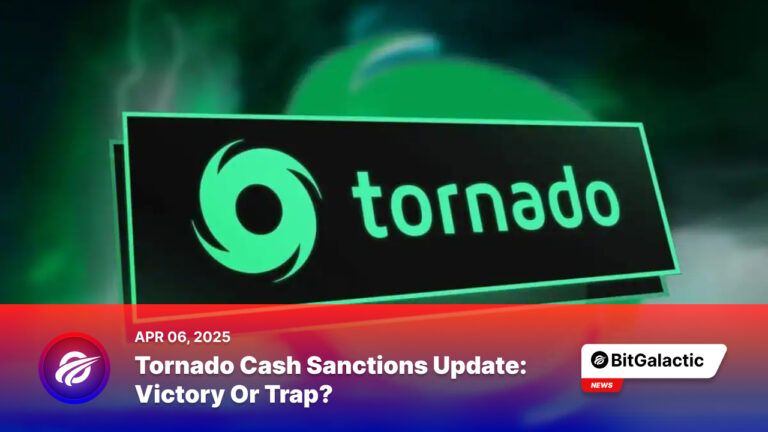Tornado Cash Sanctions Update: Victory or Trap?
Hey, crypto fam! Imagine this: a privacy tool like Tornado Cash beats the U.S. government in court—an epic win for freedom, right? But hold up—what if I told you this ‘victory’ might be a ticking time bomb? I’m Carson from BitGalactic, a crypto vet with 10 years in the game, and today we’re diving deep into this wild twist. Stick around—this could change how you see privacy in crypto forever!
So here’s the deal: back in March 2025, the U.S. Treasury dropped Tornado Cash from its sanctions list after a brutal legal smackdown. Last November, a New Orleans appeals court ruled that immutable smart contracts—like the ones powering Tornado Cash—can’t be sanctioned like humans or companies. Huge W for privacy advocates, right? Crypto Twitter went wild, calling it a landmark for DeFi freedom.
But let’s pump the brakes. The Treasury didn’t admit defeat—they just said, ‘Oh, we’re delisting it at our discretion.’ Translation? They’re dodging a legal precedent that could lock them out of regulating tools like this forever. The plaintiffs—guys like Ethereum dev Preston Van Loon—are pushing for a court order to make this permanent, but the feds are like, ‘Nah, case closed.’
Here’s my take after a decade in crypto: this smells like a strategic retreat. The government’s playing the long game. They lost this round, but without a binding precedent, they could swing back at Tornado Cash—or any mixer—whenever they feel like it. Look at the numbers: DefiLlama shows Tornado Cash deposits tanked over 50% after the 2022 sanctions and still haven’t recovered—down 31% in Ether terms as of April 2025. Privacy tools are bleeding, and this uncertainty isn’t helping.
Compare this to 2017 when regulators cracked down on centralized exchanges like Bitfinex. Back then, the fines stuck because those were companies, not code. Tornado’s different—it’s unstoppable software. But if the Treasury finds a loophole, we could see a chilling effect across DeFi. I’ve watched markets shift on less—when XRP got delisted in 2020, its price cratered 70% in weeks. Uncertainty kills momentum.
Let’s rewind. In 2022, OFAC hit Tornado Cash, claiming it laundered $7 billion, including $455 million tied to North Korea’s Lazarus Group. Scary stuff, sure—but sanctioning a tool? That’s like banning a hammer because someone built a bomb with it. The plaintiffs sued, arguing it’s unconstitutional overreach, and they’ve been climbing a mountain ever since. Courts almost never rule against the government on national security—think post-9/11 Patriot Act vibes.
Yet this isn’t new. Remember Silk Road? The feds shut it down in 2013, but Bitcoin kept chugging because it’s just code. Tornado’s the same beast—decentralized, untouchable… unless regulators rewrite the rules. Fast forward to now: the SEC’s been dropping crypto lawsuits left and right in 2025, signaling a rethink. Joe Doll from Magic Eden nailed it—these are short-term wins hiding long-term traps.
So what’s next? If the Texas court doesn’t lock this down with a summary judgment, I’d bet we see the Treasury test the waters again by 2026—maybe targeting another mixer like Samourai or Wasabi. Privacy coins like Monero could feel the heat too; their market cap’s up 15% this year per CoinGecko, showing demand’s still there. But if regulators win one case elsewhere, this ‘victory’ unravels fast.
Share this post


